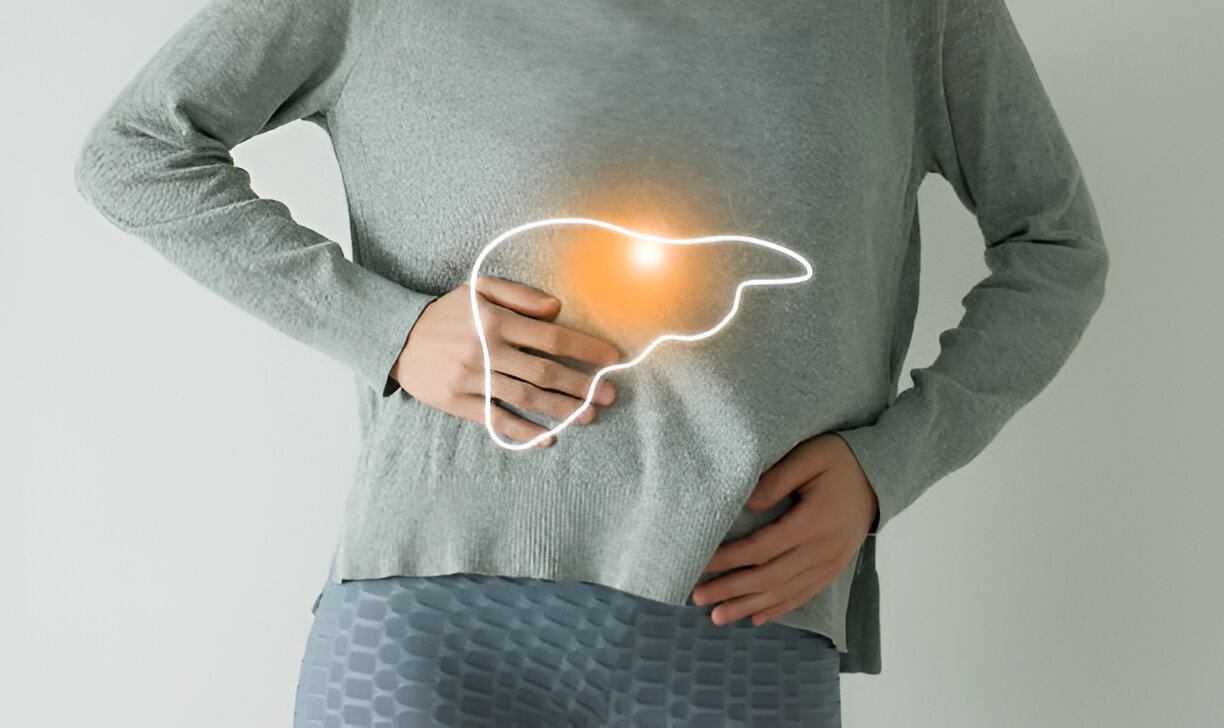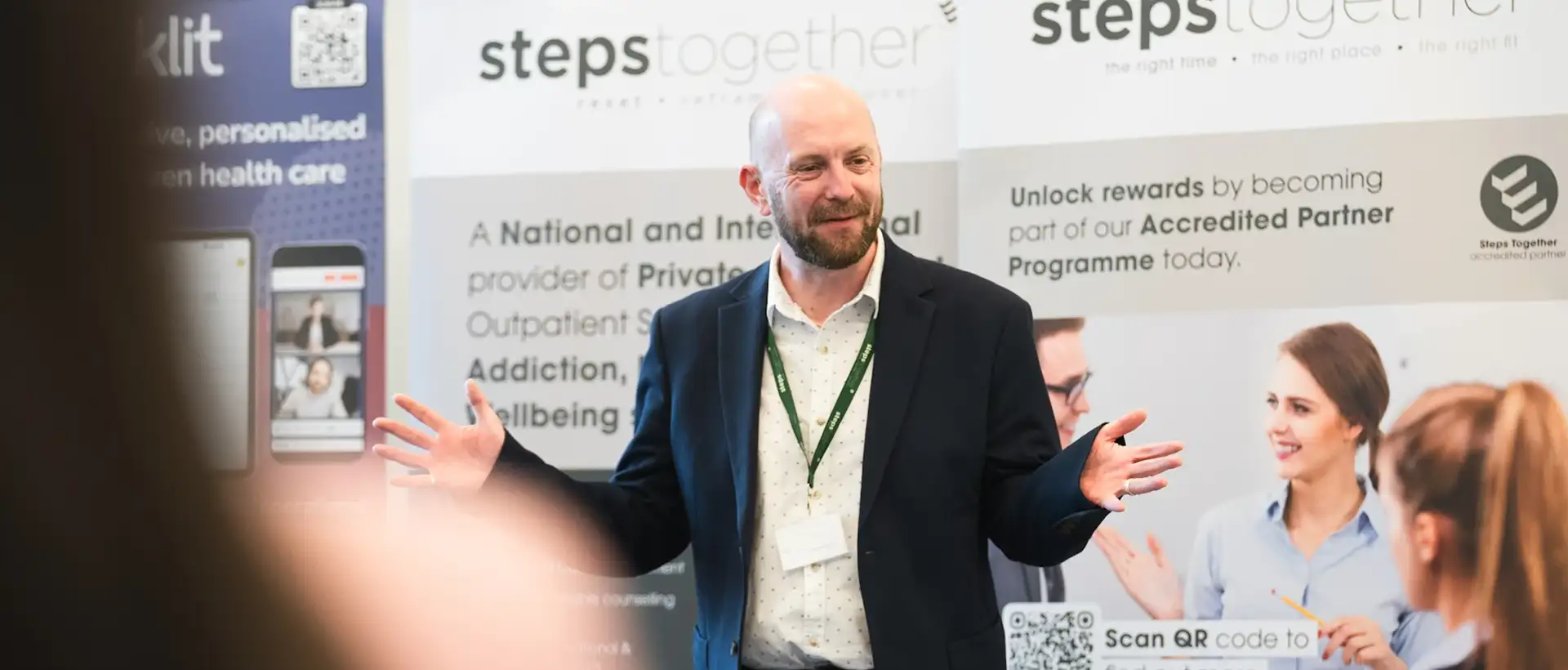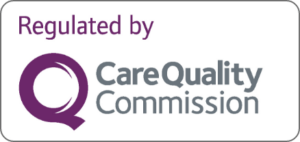What Is Detoxification? Your Complete Guide to Cleansing and Renewal

Detoxification, often referred to simply as detox, is the process of removing toxic substances from the body. It plays a significant role in health and wellness, promoting a cleaner internal environment which can contribute to better overall health.
In recent years, detox programs and treatments have surged in popularity within the wellness industry. From juice cleanses and fasting diets to specialised therapies like colon cleansing and sauna sessions, many people are exploring various methods to achieve perceived health benefits.
This article provides a comprehensive understanding of detoxification, diving into its scientific basis, common methods, and distinguishing between medical and alternative approaches. Gain insight into how the body’s natural detox systems work and learn about different detox strategies to make informed decisions about your health.
The Science Behind Detoxification
The human body has natural detoxification systems that work to remove toxins and keep us healthy. The liver and kidneys are the main organs involved in this process.
The Role of the Liver
The liver is the body’s main detoxifier. It takes in toxins from the digestive system and breaks them down into less harmful substances through a series of chemical reactions. These substances are then removed from the body through bile or blood:
- Phase I Detoxification: Enzymes in the liver convert toxins into intermediate substances.
- Phase II Detoxification: These intermediates are further modified to make them water-soluble, allowing for easier elimination.
The Function of the Kidneys
The kidneys filter blood to get rid of waste products and excess substances, which are then expelled as urine. They play a vital role in maintaining fluid and electrolyte balance, which helps with toxin removal.
Other Organs Involved in Detoxification
Other organs like the skin, lungs, and digestive system also contribute to detoxification:
- Skin: Eliminates toxins through sweat.
- Lungs: Expel volatile compounds via breath.
- Digestive System: Excretes waste through bowel movements.
By understanding these biological processes, we can see how our bodies naturally handle toxins without needing any special treatments.
Common Detox Methods
1. Dietary Approaches to Detoxification
Exploring various dietary detox methods:
- Fasting: One of the oldest detox methods, fasting involves abstaining from all or certain types of food for a specific period. Proponents claim it allows the digestive system to rest and the body to eliminate toxins more effectively.
- Potential Benefits: May promote weight loss, improve insulin sensitivity, and reduce inflammation.
- Risks: Prolonged fasting can lead to nutrient deficiencies, muscle loss, and metabolic slowdown.
- Juice Cleanses: Involves consuming only fruit and vegetable juices over a set number of days. Believed to flood the body with vitamins and antioxidants while flushing out toxins.
- Potential Benefits: Provides a concentrated dose of micronutrients and can aid in hydration.
- Risks: Can result in calorie restriction, leading to dizziness, fatigue, and nutrient imbalances.
- Herbal Supplements: Often marketed as detox aids, these include teas, pills, or powders containing herbs like dandelion root or milk thistle.
- Potential Benefits: Some herbs have antioxidant properties and may support liver function.
- Risks: Lack of regulation means potential for contamination or inaccurate dosing. Some herbs can interfere with medications or cause adverse effects.
- Calorie-Restrictive Diets: These diets reduce daily caloric intake significantly, sometimes incorporating specific foods believed to cleanse the body.
- Potential Benefits: May lead to rapid weight loss and reduced blood sugar levels.
- Risks: Prolonged calorie restriction can cause malnutrition, weakened immune function, and hormonal imbalances.
Understanding these methods’ potential benefits and risks helps make informed decisions about whether they align with individual health goals. While certain approaches might offer short-term gains, they also carry potential pitfalls that should not be overlooked.
2. Alternative Therapies for Detoxification
Alternative detox methods extend beyond dietary changes, fasting, juice-only diets, and herbal supplements. These therapies often focus on physical processes and external treatments to promote toxin elimination.
Colon Cleansing
Colon cleansing involves techniques like enemas or laxatives aimed at flushing out the contents of the large intestine. Proponents believe it can remove toxins and enhance digestive health. However, scientific evidence supporting its effectiveness is limited. Potential risks include dehydration, electrolyte imbalances, and damage to the colon lining.
Sauna Therapy
Sauna use is another popular alternative detox method. The idea is that sweating helps expel toxins through the skin. While saunas can aid in relaxation and improve circulation, their effectiveness in detoxification lacks robust scientific backing. Excessive sauna use can lead to dehydration and overheating.
Other Methods
Various other non-dietary approaches are touted as detoxifying, such as:
- Dry Brushing: Believed to stimulate lymphatic drainage and exfoliate skin.
- Foot Baths: Claimed to draw out impurities through the feet.
- Massage Therapy: Promoted for supposed benefits in improving circulation and aiding lymphatic flow.
Each method has its own set of claims and potential drawbacks. Scientific scrutiny often reveals limited evidence for their efficacy in toxin removal.
Scientific Evidence
A critical examination of these therapies shows that many lack substantial scientific validation. The body’s natural detox systems—liver, kidneys, lungs, skin—are generally sufficient for eliminating toxins without additional interventions. Ensuring a balanced diet, adequate hydration, regular exercise, and sufficient sleep remains fundamental for supporting these natural processes.
These alternative therapies may offer supplementary health benefits but should be approached with caution. Consulting healthcare professionals before embarking on any detox regimen is advisable to avoid adverse effects.
Seeking Help and Treatment Options for Gambling Addiction
When faced with gambling addiction, knowing the available treatment options is critical for starting on the path to recovery. Specialized treatment centers and support systems play a vital role in providing the necessary help to those struggling with this condition.
Specialist Gambling Treatment Clinics
Specialist gambling treatment clinics offer comprehensive recovery programs tailored to address the multifaceted nature of gambling addiction. These clinics provide a supportive environment where individuals can access professional care, including therapy sessions, medical treatment, and counseling. The National Gambling Clinic in London is a prime example of such a facility. It offers an array of services from psychiatrists, psychologists, and therapists who specialize in the treatment of problem gambling.
These clinics emphasize:
- Assessment and Diagnosis: Understanding each individual’s specific challenges with gambling.
- Personalized Treatment Plans: Crafting strategies that cater to personal needs and circumstances.
- Cognitive Behavioral Therapy (CBT): Helping individuals change unhealthy gambling behaviors and thoughts.
- Family Therapy: Offering support and therapy for family members affected by the addiction.
If you’re seeking assistance outside of London or looking for services that might be more locally accessible, Steps Together Rehab offers a range of holistic services and support mechanisms that may be beneficial.
Supportive Charities and Groups
In addition to clinical treatments, many charities and support groups provide invaluable assistance. They understand the unique challenges posed by gambling addiction and offer resources that can aid in recovery. Gamblers Anonymous stands out as a renowned support group where you can find solidarity and shared experiences that foster healing. These organizations typically offer:
- Peer Support Meetings: Engaging with others who have faced similar struggles.
- Education Resources: Learning about addiction and ways to overcome it.
- Emotional Support: Accessing guidance from people who genuinely understand.
Helpline Services for Immediate Support
For immediate assistance, helplines for problem gamblers are a lifeline offering urgent support. The National Gambling Helpline, for instance, provides confidential advice and help 24/7. The importance of these helplines lies in their availability—anytime an urge strikes or a crisis looms, someone is there to listen and assist.
Key aspects of helpline services include:
- Crisis Intervention: Offering immediate help during critical moments.
- Referrals: Guiding callers to appropriate treatment options or support groups.
- Supportive Counseling: Providing short-term assistance until further help is obtained.
As you navigate through the complexities of gambling addiction recovery, remember that numerous avenues for help exist. Whether it’s specialized clinics like the National Problem Gambling Clinic, comprehensive rehab programs such as those offered at Steps Together Rehab, or immediate assistance from helplines, there’s always a resource available to aid you on your journey towards healing.
Supportive Charities and Groups
When dealing with gambling addiction, it’s important to remember that you’re not alone. There are many charities and support groups out there that can provide understanding and personalized assistance for your specific challenges. These organizations play a crucial role in the recovery process by offering a community of people who have been through similar experiences, as well as educational resources and support services.
Helplines for Problem Gamblers
Helplines specifically dedicated to assisting problem gamblers are crucial, as they provide immediate support when needed. One such helpline is the National Gambling Helpline, which offers confidential advice and emotional support across the UK.
Treatment Centers and Online Programs
For those in need of more intensive treatment, there are treatment centers and rehabilitation programs available that can be part of a comprehensive approach to recovery. These may include options such as one-to-one therapy, residential treatment programs, and outpatient support services.
In addition to traditional treatment methods, the integration of online self-help programs ensures accessibility for those who might prefer or require an alternative to face-to-face interaction. These digital platforms often offer interactive tools to monitor gambling behavior, self-assessment quizzes, and forums for community support.
Online Resources
Charitable organizations like GambleAware offer extensive resources online, while Citizens Advice Bureau can assist with legal and financial advice connected to gambling issues.
By reaching out to these resources, you can access a wide range of treatment options for gambling addiction. Whether it’s seeking immediate help through helplines, attending group meetings for ongoing support, or exploring professional therapy, there are effective solutions available. It’s important to know that it’s okay to ask for help and that support is always within reach.
Helpline Services for Immediate Support
Helpline services are an invaluable resource for individuals facing the immediate challenges of gambling addiction. These services offer a lifeline in times of need, providing rapid access to support and guidance.
National Gambling Helpline: [0808 8020 133](tel:0808 8020 133)
The National Gambling Helpline is available round the clock to ensure that no call for help goes unanswered.
Helplines for problem gamblers serve several critical roles:
- Immediate Response: You get direct support from trained professionals who understand the complexities of gambling addiction.
- Confidentiality: Calls are treated with the utmost confidentiality, allowing you to share your concerns freely and without fear of judgment.
- Crisis Management: If you are in a crisis, helpline staff can provide crucial intervention strategies and emotional support.
- Referral Services: You receive information about treatment options for gambling addiction, including local treatment centers and rehabilitation programs.
- Support Groups: They can connect you with support groups where sharing experiences with peers can foster healing.
For those unsure where to begin, helplines serve as an accessible starting point. Trained advisors will guide you through the available treatment options and support groups, ensuring you find the help suited to your individual needs.
Medical Detoxification vs. Alternative Detox Methods
Medically Assisted Detox
Medical detoxification, often referred to as medically assisted detox, is a critical process for individuals dealing with substance use disorders. This approach involves the supervised removal of toxic substances from the body, typically in a clinical setting.
Medically assisted detox is essential for managing withdrawal symptoms that can occur when someone stops using addictive substances. These symptoms can range from mild discomfort to severe, life-threatening conditions. For instance:
- Alcohol: Withdrawal can cause tremors, seizures, and delirium tremens.
- Opioids: Symptoms include muscle pain, gastrointestinal distress, and severe agitation.
Healthcare professionals may administer medications to alleviate these symptoms and ensure patient safety during the detox process.
Alternative Detox Methods
Alternative detox methods often lack scientific validation but remain popular in wellness circles. These methods can include dietary cleanses, colonics, and sauna therapy. While they may offer some perceived benefits such as short-term weight loss or improved skin appearance, their efficacy in actual toxin elimination is debatable.
Psychosocial Factors Affecting Detox Outcomes
Detoxification success isn’t solely determined by the physical removal of toxins; psychosocial factors play a significant role. Stigma and lack of social support can profoundly impact an individual’s ability to successfully complete a detox program.
Stigma
Individuals struggling with substance use disorders often face societal judgment. This stigma can prevent them from seeking necessary help or fully engaging in the detox process.
“The shame associated with addiction can be a significant barrier to recovery,” says Dr. Jane Doe, an addiction specialist.
Social Support
The presence of supportive networks—family, friends, and community groups—can greatly enhance the effectiveness of detox programs. Emotional support provides motivation and encouragement during challenging times.
Addressing Co-Occurring Conditions
To achieve successful recovery outcomes, it is crucial to address any co-occurring medical or mental health conditions alongside substance use disorders. Conditions such as depression or anxiety can exacerbate substance misuse and hinder the detox process if left untreated.
Integrated Treatment Plans
Combining medical detox with therapies targeting mental health issues ensures a comprehensive approach to recovery.
“Dual diagnosis treatment is essential for those battling both addiction and mental health disorders,” notes Dr. John Smith, a psychiatrist specialising in addiction treatment.
Medical detoxification offers structured support and clinical oversight crucial for safely managing withdrawal symptoms. Conversely, alternative methods lack robust scientific backing but remain appealing due to their holistic appeal. Psychosocial factors such as stigma and social support significantly influence detox outcomes, underlining the importance of a well-rounded approach to treatment.
The Importance of Addressing Co-Occurring Conditions in Recovery Outcomes
Addressing co-occurring medical or mental health conditions is vital during the recovery process from substance use disorders. These co-occurring conditions, often referred to as comorbidities, can significantly impact the effectiveness of detox programs and overall recovery success.
Key Points to Consider:
- Substance Use Disorders and Withdrawal Symptoms: Individuals with substance use disorders frequently experience intense withdrawal symptoms that need medically assisted detox. Professional support ensures these symptoms are managed safely.
- Psychosocial Issues: Mental health conditions such as depression, anxiety, or PTSD often coexist with substance use disorders. Untreated psychosocial issues can hinder recovery and increase the risk of relapse.
- Medically Assisted Detox: In contrast to alternative detox methods, medical detoxification provides structured care, addressing both physical withdrawal symptoms and underlying medical conditions. This approach offers a comprehensive treatment plan tailored to individual needs.
“Effective detoxification goes beyond merely expelling toxins; it encompasses treating the whole person, including their mental and emotional well-being.”
- Professional Support: Engaging healthcare professionals during the withdrawal phase ensures any co-occurring conditions are promptly identified and treated. This integrated care model promotes better long-term outcomes.
Understanding the distinction between medical detox for addiction and alternative methods is critical for those seeking effective treatment. Medical detox not only focuses on eliminating substances but also on stabilising patients physically and psychologically.
Conclusion: Making Informed Decisions About Detox Programs and Treatments
Understanding what detoxification is can empower you to make informed decisions about your health. Detox programs promise various benefits, but it’s crucial to approach them with caution.
Key Recommendations:
Consult a Professional: Always seek advice from healthcare providers before starting any detox regimen.
Safety First: Ensure that the methods used are safe and suitable for your specific health needs.
Balanced Approach: Support your body’s natural detox systems through a healthy diet, hydration, sleep, and exercise.
By taking these steps, you can support your body’s innate ability to detoxify while minimising risks.
Share with:





